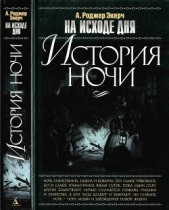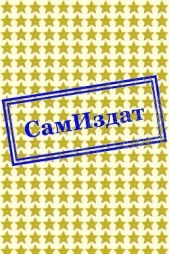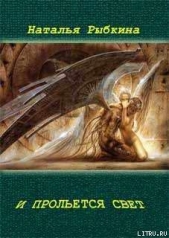На исходе дня. История ночи

На исходе дня. История ночи читать книгу онлайн
Книга известного американского ученого А. Роджера Экерча "Ha исходе дня. История ночи" перевернула представления человека о темном времени суток. Казалось бы, что может случиться с людьми после заката солнца, когда они отдыхают или спят? Но по убеждению автора, именно ночью происходит много интересного, таинственного и забавного. Ночь — это убежище от обыденности, пора влюбленных, время действий добрых и злых сил. Кто-то отправляется развлекаться на балы и маскарады, кто-то спешит в таверну или кабачок, а кое-кто предпочитает посвящать ночные часы усердной молитве. Под покровом тьмы совершаются и различные преступления — от мелких краж до жестоких убийств. При свете свечей проводят собрания члены тайных обществ и сект. Ночью занимаются сексом, болеют, рассказывают страшные истории, делают записи в дневнике, сочиняют книги, мечтают… Автор подробно описывает ночную жизнь людей разных сословий в странах Европы и Америки в период с XVI и до середины XIX века, когда в мир пришло искусственное освещение, прорезавшее ночную тьму. Наряду с документальными текстами исследователь приводит немало захватывающих, пугающих и комических историй, оставшихся в памяти нескольких поколений.
Внимание! Книга может содержать контент только для совершеннолетних. Для несовершеннолетних чтение данного контента СТРОГО ЗАПРЕЩЕНО! Если в книге присутствует наличие пропаганды ЛГБТ и другого, запрещенного контента - просьба написать на почту [email protected] для удаления материала
27. Laura Gowing, "'The Freedom of the Streets': Women and Social Space, 1560–1640," in Mark S. R Jenner and Paul Griffiths, eds., Londinopolis: Essays in the Cultural and Social History of Early Modem London (Manchester, 2000), 143; Linda A. Pollock, "Parent-Child Relations," in FLEMT, 215–217; Alan Williams, The Police of Paris, 1718–1789 (Baton Rouge, 1979), 196; Jane Brewerton, Feb. 29,1760, Assi 45/26/4/6.
28. Jan. 23, 1574, J. H. Van Eeghen, Ed., Dagboek Van Broeder Wouter Jacobsz (Gualtherus Jacobi Masius Prior Van Stein: Amsterdam, 1572–1578, En Montfoort, 1578–1579, Gronningen, Neth., 1959), 359.
29. Thomas Dekker, The Seven Deadly Sinnes of London, ed. H. F. B. Brett-Smith (New York, 1922), 41; Nicolas-Edme Restif de la Bretonne, Les Nuits de Paris or the Nocturnal Spectator (New York, 1964), 68; Select Trials, II, 11; Legg, Low-Life, 100; Wilson, English Proverbs, 542; OED, s. v. "flitting."
30. Dekker, Writings, 230; Richard Head, The Canting Academy; or Villanies Discovered… (London, 1674), 37, 40; Roger B. Manning, Village Revolts: Social Protest and Popular Disturbances in England, 1509–1640 (Oxford, 1988), 173; Gilbert Slater, The English Peasantry and the Enclosure of Common Fields (1907; rpt. edn., New York, 1968), 119–120; Hugh Evans, The Gorse Glen, trans. E. Morgan Humphreys (Liverpool, 1948), 70.
31. Carol F. Karlsen, The Devil in the Shape of a Woman: Witchcraft in Colonial New England (New York, 1987), 159; Alan Taylor, "The Early Republic's Supernatural Economy: Treasure Seeking in the American Northeast, 1780–1830," American Quarterly 38 (1986), 6—34 (Я благодарю Алана Тэйлора за предоставление мне копии своей статьи); William W. Hagen, Ordinary Prussians: Brandenburg, Junkers and Villagers, 1500–1840 (Cambridge, 2002), 479; W. R. Jones, "'Hill-Diggers' and 'Hell-Raisers': Treasure Hunting and the Supernatural in Old and New England," in Peter Benes, ed., Wonders of the Invisible World: 1600–1900 (Boston, 1995), 97—106. См. также: Benjamin Franklin, Writings, ed. J. A. Leo Lemay (New York, 1987), 113–115.
32. PA, Jan. 3,1786; Rose, ed., Slavery, 460; Malcolm Letts, "Johannes Butzbach, a Wandering Scholar of the Fifteenth Century," English Historical Review 32 (1917), 31; Thomas, Religion and the Decline of Magic, 506–523; H. C. Erik Midelfort, "Were There Really Witches," in Robert M. Kingdon, ed., Transition and Revolution: Problems and Issues of European Renaissance and Reformation History (Minneapolis, 1974), 198–199; David Thomas König, Law and Society in Puritan Massachusetts: Essex County, 1629–1692 (Chapel Hill, N. C, 1979), 145–179, passim.
33. Karlsen, Shape of a Woman, 140; SWP, II, 413; NHTR, II, 130–131.
34. Pinkerton, Travels, III, 316; Carmina Medii Aevi (Torino, 1961), 35; Jütte, Poverty, 152–153. См. также: Letters from Barbary, France, Spain, Portugal… (London, 1788), II, 113.
35. June 2,1663, Pepys, Diary, IV, 171, Beattie, Crime, 173–175. См. также: Best, Books, 35.
36. Domestic Management, or the Art of Conducting a Family; with Instructions to Servants in General (London, 1740), 59; Pinkerton, Trawls, III, 316; Mar. 22,1770, Carter, Diary, I, 372; John Greaves Nail, ed., Etymological and Comparative Glossary of the Dialect of East Anglia (London, 1866), 521; William Hector, ed., Selections from the Judicial Records of Renfrewshire… (Paisley, Scot., 1876), 203–204.
37. Newton D. Mereness, ed., Travels in the American Colonies, 1690–1783 (New York, 1916), 592, 606–607; John C. Fitzpatrick, ed., The Writings of George Washington (Washington, D.C., 1939), XXXII, 264; Richard Parkinson, The Experienced Farmer's Tour in America (London, 1805), 446–447; James M. Rosenheim, ed., The Notebook of Robert Doughty, 1662–1665 (Norfolk, 1989), 39; Morgan, Slave Counterpoint, passim.
38. Manning, Village Revolts, 296, 284–305, passim; Rachel N. Klein, "Ordering the Backcountry: The South Carolina Regulation," WMQ, 3rd Ser., 38 (1981), 671–672.
39. Robert Bell, Early Ballads… (London, 1889), 436–437; David Davies, The Case of Labourers in Husbandry… (Dublin, 1796), 77; Spike Mays, Reuben's Corner (London, 1969), 197; Frank McLynn, Crime and Punishment in Eighteenth-Century England (London, 1989), 172–197. См. также: Walker's Hibernian Magazine, April 1792,296.
40. LEP, Oct. 5,1738; Arthur Walter Slater, ed., Autobiographical Memoir of Joseph Jewell, 1763–1846 (London, 1964), 134; Cal Winslow, "Sussex Smugglers," in Douglas Hay et al, eds., Albion's Fatal Tret. Crime and Society in Eighteenth-Century England (New York, 1975), 119–166; Hufton, Poor of Eighteenth-Century France, 284–305.
41. Defoe, Tour, 1,123; OED, s. v. "owler"; McLynn, Crime and Punishment, 177; Burton E. Stevenson, The Home Book of Proverbs, Maxims and Familiar Phrases (New York, 1948), 1623; Eric Partridge, ed., A Dictionary of the Underworld… (New York, 1950), 449; Dec. 13,1794, Woodforde, Diary, IV, 160, passim; Slater, ed., Jewell Memoir, 135; "Extract of a Letter from Orford" LC, March 23,1782; John Kelso Hunter, The Retrospect of an Artist's Life: Memorials of West Countrymen and Manners of the Past Half Century (Kilmarnock, Scot., 1912), 42.
42. T. J. A. Le Goff and D. M. G. Sutherland "The Revolution and the Rural Community in Eighteenth-Century Brittany," PP 62 (1974), 100; Jütte, Poverty, 153–156. В отличие от контрабанды, разграбление кораблей, потерпевших крушение, жителями побережья не было исключительно ночным видом преступления. Несмотря на изредка звучавшие голословные обвинения в том, что на берегу зажигались фальшивые сигнальные огни, приведшие к кораблекрушению, свидетельств этому крайне мало. В основном мародеры грабили суда, как только могли до них добраться, вне зависимости от того, какое было время суток. См.: "An Act for Enforcing the Laws Against Persons Who Shall Steal or Detain Shipwrecked Goods…," 26 George II c. 19; W. H. Porter, A Penman’s Story (London, 1965), 129; John G. Rule, "Wrecking and Coastal Plunder," in Hay et al., eds., Albion's Fatal Tree, 180–181.
43. Tobias Smollett, Travels through France and Italy (Oxford, 1979), 215; Cannon, Diary, 183; OBP, Sept. 18, 1752, 244; Richard Jefferson, Oct. 16, 1734, Assi 45/20/1/9; D. R Hainsworth, Stewards, Lords, and People: The Estate Steward and His World in Later Stuart England (Cambridge, 1992), 208–209; Jim Bullock, Bowers Row: Recollections of a Mining Village (Wakefield Eng., 1976), 163; Douglas Hay, "Poaching and the Game Laws on Canock Chase," in Hay et al., eds., Albion's Fatal Tree, 201–202; Manning, Village Revolts, 293; Douglas Hay "War, Dearth and Theft in the Eighteenth Century: The Record of the English Courts," PP 95 (1982), 117–160. Как сказал E. П. Томпсон, «тот же человек, который снимает шляпу перед сквайром днем и кто мог бы остаться в истории как образец почтительности, ночью может убивать его овец, ловить в капканы его фазанов и отравлять его псов». (Customs in Common: Studies in Traditional Popular Culture [New York, 1991], 66.)
44. Robert M. Isherwood, Farce and Fantasy: Popular Entertainment in Eighteenth-Century Paris (New York, 1986), 208; Roger Thompson, Unfit for Modest Ears: A Study of Pornographic, Obscene and Bawdy Works Written or Published in England in the Second Half of the Seventeenth Century (Totowa, N. J., 1979), 59; Alexander Hamilton, Gentleman's Progress: The Itinerarium of Dr. Alexander Hamilton, 1744, ed. Carl Bridenbaugh (Chapel Hill, N. C, 1948), 46; "T.S.C.P.," PA, Nov. 13, 1767; Kathryn Norberg, "Prostitutes," in HWW III, 459–474.


























